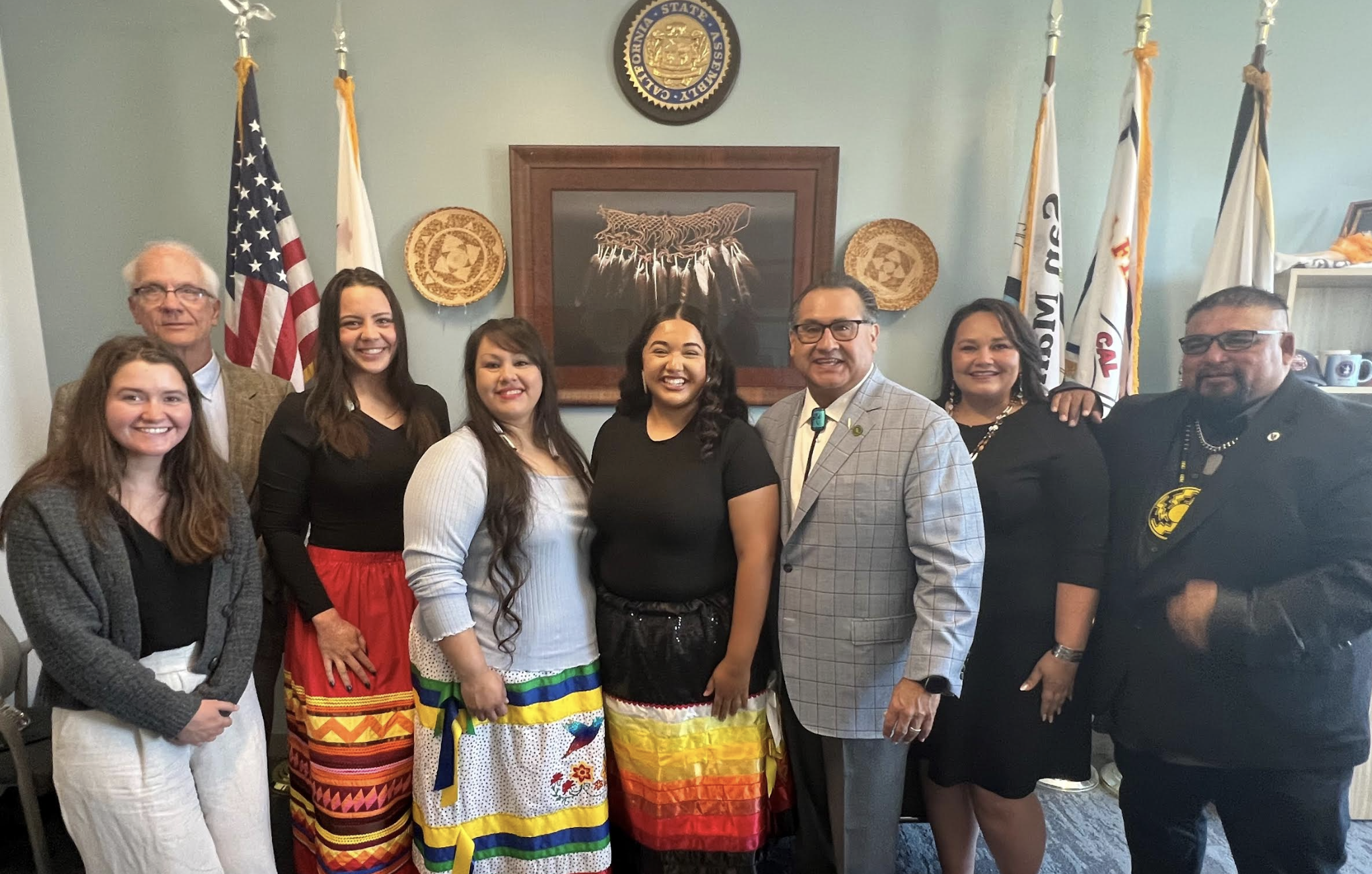
- Details
- By Native News Online Staff
The Senate Education Committee today approved a bill that prohibits schools from implementing any policies or practices that could discourage or prevent Native American students from wearing tribal adornments or ceremonial regalia at graduation ceremonies. The measure, AB 1369, was introduced by Assemblymember James C. Ramos (D-San Bernardino).
“Despite existing legislation and constitutional protections to allow students to wear traditional tribal regalia at graduation ceremonies, Native American youth and their families continue to face obstacles and challenges. Graduation ceremonies are a time for students, their families and tribal communities to share pride and joy in a major accomplishment. AB 1369 adds clarity to current law so that students’ and families’ celebration is not marred by unnecessary turmoil,” Ramos said. He noted that regalia might include items such as eagle feathers or beading and represent cultural and religious traditions.
In 2018, the Legislature passed AB 1248 (Chapter 804, Statutes of 2018) to protect students' rights, affirming that "a pupil may wear traditional tribal regalia or recognized objects of religious or cultural significance as an adornment at school graduation ceremonies." However, many school districts have continued to deny Native American students the right to wear such items or have attempted to define what is considered appropriate or authentic tribal regalia.
To further address this issue, the Legislature passed AB 945 in 2021 (Chapter 285, Statutes of 2021), also authored by Assemblymember Ramos. That bill created a task force to advise education leaders on policies, procedures, and best practices for implementing AB 1248. While the task force’s report is still being finalized, advocates say immediate legislative action is needed, as reports of denial continue.
AB 1369 is sponsored by California Indian Legal Services and the Tule River Indian Tribe, with support from Fresno Unified School District, ACLU California Action, the Habematolel Pomo of Upper Lake, and Indigenous Justice.
The bill passed the Senate Education Committee with unanimous support in a 7-0 vote and now heads to the Senate Judiciary Committee.
More Stories Like This
NCAI Passes Two Emergency Resolutions on Immigration Enforcement ActivitiesChickasaw Lighthorse Police Officer named Indian Country Law Enforcement Officer of the Year
Indian Gaming Association Rallies Broad Coalition Against Sports Event Contracts It Calls Illegal Threat to Tribal Sovereignty
Navajo Resources and Development Committee Issues Notice on Livestock Inspection Requirements
American Prairie, Tribal Coalition Files Protest Over Rescinded Grazing Rights
Help us defend tribal sovereignty.
At Native News Online, our mission is rooted in telling the stories that strengthen sovereignty and uplift Indigenous voices — not just at year’s end, but every single day.
Because of your generosity last year, we were able to keep our reporters on the ground in tribal communities, at national gatherings and in the halls of Congress — covering the issues that matter most to Indian Country: sovereignty, culture, education, health and economic opportunity.
That support sustained us through a tough year in 2025. Now, as we look to the year ahead, we need your help right now to ensure warrior journalism remains strong — reporting that defends tribal sovereignty, amplifies Native truth, and holds power accountable.
 The stakes couldn't be higher. Your support keeps Native voices heard, Native stories told and Native sovereignty defended.
The stakes couldn't be higher. Your support keeps Native voices heard, Native stories told and Native sovereignty defended.
Stand with Warrior Journalism today.
Levi Rickert (Potawatomi), Editor & Publisher


